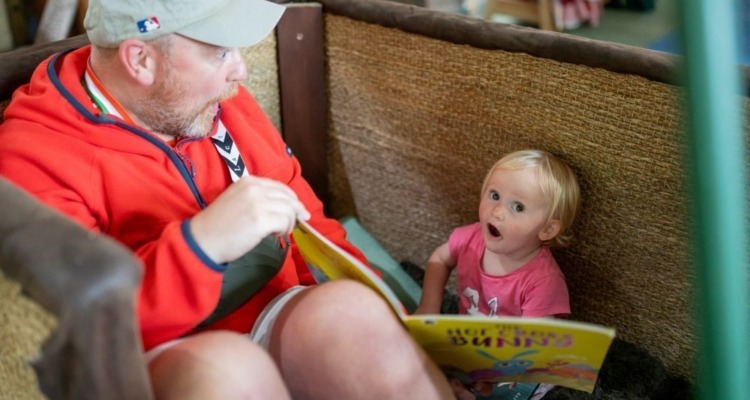We Need a New Language for Mental Health
The Reader Organisation is calling for a new language to talk about mental health, with senior health professionals, readers and writers discussing the idea in the opening session of our annual conference, ‘Shared Reading for Healthy Communities’ at the British Library on 16th May 2013.
Our Get Into Reading project is commissioned by health services across the UK, but unlike the growing number of 'Books on Prescription' and 'Bibliotheraphy' schemes, we have chosen not to limit the description of our model as 'therapy'. We believe literature exists to address the human condition, as our founder and director Jane Davis explains:
“Those medical words – prescription, therapy – which at first glance carry a medical imprimatur of seriousness, have largely come from the pharmaceutical and psychotherapeutic industries, and actually point to a re-positioning of the inner life as a problem to be solved by experts, by others.
We increasingly feel the pressure to talk about our work in medicalised terms - intervention, service, outcomes – terms which limit the power of what humanly it is that is making the difference. I want to find a new language, so that people don’t have to say, ‘I’m sick’, when they’re suffering the human condition.”
Last year, we provided 92,400 unique shared reading experiences through our work with health, library, education, adult social care services and other bodies. The personalised model, which enables even non-readers to join in as everything is read aloud in the group, is now backed up with strong qualitative and quantitative evidence from researchers.
At the Royal Liverpool and Broadgreen University Hospitals NHS Trust in Liverpool, patients are currently taking part in a shared reading group as part of a chronic pain research project, the initial findings of which will be revealed at the conference.
Dr Andrew Jones, consultant in anaesthesia and pain medicine, at the hospital, says:
“Early indications are showing that the reading group is making a difference to people in our hospital but there is something intangible, a deeper impact beyond that, which we can’t measure using existing qualitative research methods.”
The conference will also explore how the benefits of the shared reading model extends beyond the traditional definition of ‘health’, addressing issues of reoffending, isolation, community cohesion, and reading for pleasure with young people.
Our Get Into Reading group members report benefits to their overall wellbeing and state of mind. A group member at HMP Wormwood Scrubs, commented that:
“The reading group has boosted my self-esteem and given me more self-confidence when I have discussions with staff and in general; it has encouraged me to read more in my spare-time, which has released a lot of stress off my shoulders as I have been suffering from depression."
Great literature connects people. There is nothing more ancient, nor more deeply healing than that.
For more information about Shared Reading for Healthy Communities, including how to book your place, please visit our website or call Sophie Johnson on 07973 247890.
Share
Related Articles

We cannot just tell parents to read more. To truly improve children’s futures through reading, we need to properly support the adults around them to do so.
Responding to the Department of Education's announcement that 2026 will be a Year of Reading, The Reader's Managing Director Jemma…

Storybarn Book of the Month: Saving the Butterfly
This month, as part of Refugee Week (16-22 June), we've been taking a look back at one of our favourites…

Shared Reading in Wirral Libraries: ‘As a kid people read stories to you but as an adult you lose that – and it’s a fantastic thing to do!’
Two Strategic Librarians for Wirral Libraries, Kathleen McKean and Diane Mitchell have been working in partnership with the UK’s largest…


